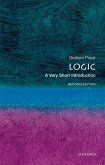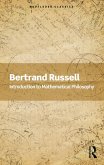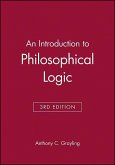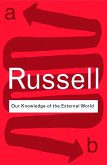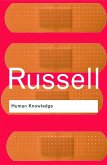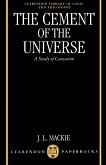Written by one of the most distinguished and influential philosophers alive today.
Cuts across core issues in logic, metaphysics, language, and epistemology.
A Contemporary classic.
Counterfactual statements are a perennial subject of interest in philosophical logic.
A presentation of and sustained argument for a particular view about propositions which express contrary-to-fact conditionals, including the author's infamous defense of realism about possible worlds.
Hinweis: Dieser Artikel kann nur an eine deutsche Lieferadresse ausgeliefert werden.
Cuts across core issues in logic, metaphysics, language, and epistemology.
A Contemporary classic.
Counterfactual statements are a perennial subject of interest in philosophical logic.
A presentation of and sustained argument for a particular view about propositions which express contrary-to-fact conditionals, including the author's infamous defense of realism about possible worlds.
Hinweis: Dieser Artikel kann nur an eine deutsche Lieferadresse ausgeliefert werden.
" Contrary-to-fact conditionals have provided logical analysts with fascinating puzzles. (This book) has a unitary theme presented clearly and attractively for the most part with only the unavoidable minimum of formal apparatus. The theme is pursued confidently and relentlessly without evasions or qualifications." Times Literary Supplement
"This is an excellent book. It combines shrewd philosophical sense with a fine technical expertise. The statement of views is concise and forthright." Kit Fine, Mind
"This essay is a virtuoso performance." British Journal for the Philosophy of Science
"Beautifully and lucidly written and full of clever ideas. It contains very many philosophical insights and comparisons." J. J. C. Smart, Australasian Journal of Philosophy
"This is an excellent book. It combines shrewd philosophical sense with a fine technical expertise. The statement of views is concise and forthright." Kit Fine, Mind
"This essay is a virtuoso performance." British Journal for the Philosophy of Science
"Beautifully and lucidly written and full of clever ideas. It contains very many philosophical insights and comparisons." J. J. C. Smart, Australasian Journal of Philosophy


